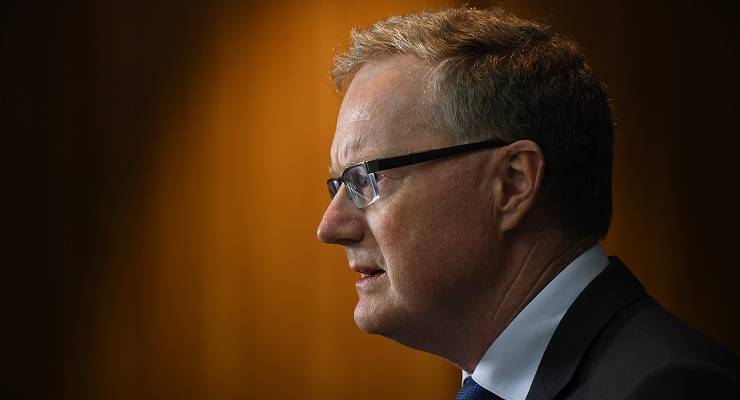
Guidance on economic policy can be found in unlikely places.
The Second Coming is one of the English-speaking world’s most quoted poems in times of uncertainty and confusion. W.B. Yeats wrote it in 1919 in the midst of the last great pandemic, Spanish flu.
Rather like the apocryphal complaint about Hamlet (“I didn’t like the play — it’s just a bunch of famous quotations strung together”) virtually every line in The Second Coming could be applied to the COVID-19 crisis.
Two in particular sum up what we know about economic recovery
The best lack all conviction, while the worst
Are full of passionate intensity.
Anyone who claims to know when and how the Australian economy will recover is fibbing. This is a time of genuine uncertainty. We don’t know and cannot predict what will happen.
The JobKeeper business subsidy is due to end on September 27. What happens after then? It will be somewhere between two poles: everyone who was on JobKeeper retains a continuing job, or none of them do and employment numbers plummet.
Although we can be pretty sure it won’t be either extreme, we don’t have the information to predict reliably where inside those bounds actual experience will fall.
We may have a slightly better idea three months from now, or uncertainty may still prevail. We don’t even know today what we won’t know in three months.
The best economic advisers lack conviction — if they are honest they admit to not knowing what’s going to happen with the economy.
One of them is Reserve Bank Governor Philip Lowe — a thoughtful and serious economist.
In his evidence to the Senate last week he emphasised how uncertain things are. On JobKeeper he said “it’s too early to say what the economy is going to be like in four months time. If we have not come out of the current trough in economic activity, there will be, and there should be, a debate about how the JobKeeper program transitions into something else”.
We know what’s happening now — huge job losses, a severe decline in activity in sectors like retail and hospitality — but not when it will turn around.
It is possible the decline will be short lived, the downturn not as severe as first feared. The prime minister is hoping for a snapback. Or things could get worse.
The reason we face such uncertainty is not simply that COVID-19 lockdowns and their impact on the economy are unprecedented. In a trivial sense most new government policy is different from past policies and therefore unprecedented.
COVID-19 is also unparalleled; there are no analogies from similar past events to guide policy.
The economy and the levers available to governments and central banks at the time of the Spanish flu pandemic were so different from today that they provide few useful lessons.
Economic policy in this climate is rather like driving urgently through dense fog.
We have a destination — recovery and jobs — but the path to it is obscure.
We know where we are now, which is better than nothing. There are dim shapes in the fog ahead — they could be a road sign, a cow or a cliff. We can only tell which is which when we are almost upon it.
In managing the economy today, we can learn from events, manage them, but may also need to turn around and find another way to get to our destination.
It is what is known as an emergent strategy — malleable as things change.
Politicians feel obligated to pretend they have the more traditional type of strategy, a clear plan for achieving a goal. They don’t want to be accused of making things up as they go along.
Similarly, economic commentators who want to be covered by mainstream media outlets have to make predictions — knowing they are likely to be wrong.
As an independent institution, the Reserve Bank does not have to assume false certainty. It can amend its approach continually — or as Philip Lowe noted, “as the data comes in, we will progressively revise”.
The fog will eventually lift. In the meantime, developing and revising strategy continually, considering a wide range of different scenarios and options, and adopting what best suits the latest available data, is the only sensible approach to take.








“We have a destination — recovery and jobs — but the path to it is obscure.”
Not surprised that the path to the destination is obscure when the destination is vague.
Show me an economist and I`ll show you a fiscal idiot, question, who got us in this mess, answer economists, the reason the economy is tanking is simple, ever-lowering wages, the cutting of discretionary income of workers and ever-rising prices disguised by the use of seasonally adjusted statistics are killing our economy exactly the way the Republican party killed the U.S economy and it’s not by accident, this is the return to the old feudal system where the rich have everything and the rest have nothing, the only difference is we voted for it and they couldn’t.
It really does feel like time for a Universal Basic Income, which JobKeeper and even the modified JobSeeker feel like rehearsals for. If everyone had an unqualified minimum income as a base on which to earn more, it’d at least support a basic level of economic activity. Means-test It if you like to exclude the millionaires, but otherwise it should come with no strings attached. Could lead to a much happier and creative society.
A definition of waste is a bus load of economists going over a cliff with some empty seats.
If they are so smart, how come they ain’t rich, except for what they suckle from the tax teat.
Like race tipsters selling a fool proof system – if it worked they’d be retired, not trying to hawk it.